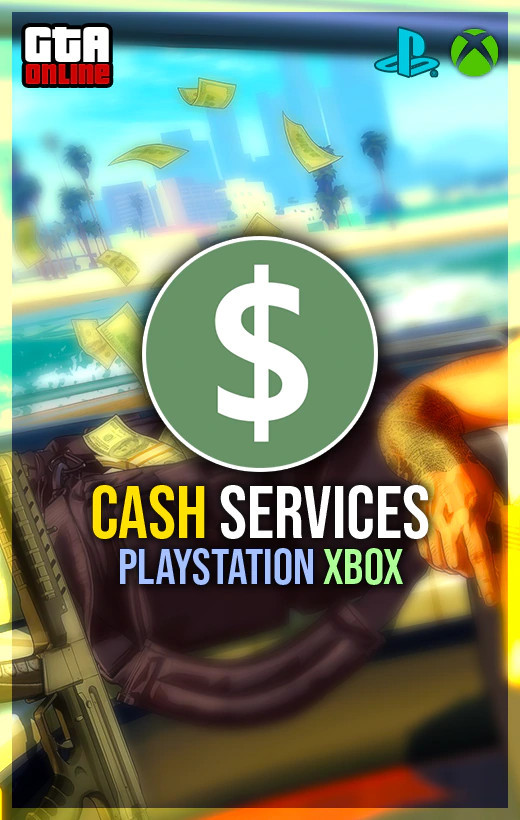views
Every player remembers their first broken moment in a game.
No ammo, no fast car, no flashy weapons. Just a low bank balance and missions that keep getting harder. It's frustrating, but it's also the moment you realize this game doesn't just want you to play. It wants you to earn.
In-game currencies have evolved into so much more than numbers sitting in the corner of your boxed integer. They dictate how you move, how often you play/and with whom you play, and they influence how methodical (or zealous) you may become.
And there's no better example of that than in-game currency in GTA 5.
From Loot to Lifestyle: Why Currency Shapes the Experience
Most sandbox or open-world games are designed around a core loop: complete missions, earn currency, unlock more.
But here's what players know (and rarely talk about): your bank balance silently sets the tone of your gameplay.
Low funds? You take risks. You hustle. You accept missions you'd normally skip.
Stacked wallet? You move with confidence. You don't just react to the game, you shape it.
So yes, currency is a resource. But it's also an attitude.

GTA 5: When Money Literally Buys Power
Let's take GTA Online, one of the most currency-driven sandboxes out there.
You log in. You're new. You've got a pistol, a basic outfit, and maybe a free car. Then you see another player fly past in an Oppressor MK II jetbike with heat-seeking missiles and custom armor. You're not even on the same playing field.
And why? Simple money.
In GTA 5, in-game currency isn't just for cosmetics. It buys:
- Advanced weapons
- Armored vehicles
- High-end apartments (for planning heists)
- Aircrafts, yachts, even entire businesses
The more money you have, the more you can dominate.
But this power dynamic doesn't just affect gameplay; it changes how players behave.
Behavior Shift #1: The Hustle Mentality
Players with low funds don't just grind; they adapt.
They memorize which missions pay the most RP or cash. They take advantage of double GTA$ weeks. They learn which vehicles are worth stealing and which aren't. And they usually avoid PvP unless there's something to gain.
These players are tactical, efficient, and slightly paranoid. Every dollar matters.
It's not survival. It's a strategy.
Behavior Shift #2: Power Players and Flash Culture
On the other end of the spectrum, the wealthy players play different.
You'll see them:
- Owning businesses that passively generate income
- Driving custom supercars just for fun
- Launching heists as leaders, not followers
- Flexing outfits that cost more than some players' total bank
Their behavior becomes less reactive and more curated. They don't just play the game, they create the experience.
And yes, they often become the players other people want to become.
Currency = Motivation, Even Outside of GTA
This dynamic isn't unique to GTA. Other games show the same pattern.
Red Dead Online: Gold bars decide your access to specialist roles and gear. Players without gold often avoid certain missions, change their playstyle, or log in only during events.
Cyberpunk 2077: Eurodollars control your entire loadout. You can't even install high-tier cyberware without enough cash. This affects how you tackle missions and which vendors you approach.
MMORPGs: Games like RuneScape or WoW have in-game economies so complex that they mirror real stock markets. The currency here defines social status. Rich players walk into towns like celebrities.
Microtransactions & Their Behavioral Ripple
It's impossible to talk about in-game currency without mentioning microtransactions.
Games now often let players skip the grind by buying currency with real money. And that brings up some interesting behavior changes:
Spenders play with less fear. If they crash a car or fail a mission, they don't sweat it. They can replace what's lost.
Grinders play cautiously. Every loss stings more because it means more time spent earning.
This doesn't mean one is better than the other. But it creates a visible divide in lobbies, sessions, and communities.
You can often tell who's earned their empire and who bought it.
How Currency Drives Player Loyalty (or Burnout)
Here's the twist: currency systems are often what keep players coming back… or make them quit.
When currency feels earnable and fair, players feel motivated. They know there's a path to that armored vehicle or dream outfit.
But when earning feels like a grind with no reward, it leads to burnout.
That's why games like GTA 5 succeed; they balance short-term rewards with long-term goals. There's always a big item on the horizon. Always something just out of reach.
And players love the chase.
What Developers Understand (And What Players Learn Fast)
Developers know currency is more than economy; it's a psychological loop.
They design around:
- Scarcity (not having enough makes you want it more)
- Status (high-cost items = social clout)
- Control (currency lets you shape your experience)
And players? They figure out how to navigate the system. They share guides, compare strategies, and even build entire communities around currency-based content.
Money talks in these games. Loudly.
Final Word: The Currency Is the Culture
In open-world and sandbox games, currency does more than unlock items; it unlocks personas.
It shapes who we become, how we act, and how others react to us. Whether we grind for hours or cash in early, that number in the top right corner is never "just a number."
Especially not in games like GTA 5, where in-game currency is the line between hustling in alleys and ruling from a penthouse.
So next time you log in, pay attention to how you play when you're broke… versus when you're loaded.
Your balance might change, but your playstyle probably already has.



Comments
0 comment